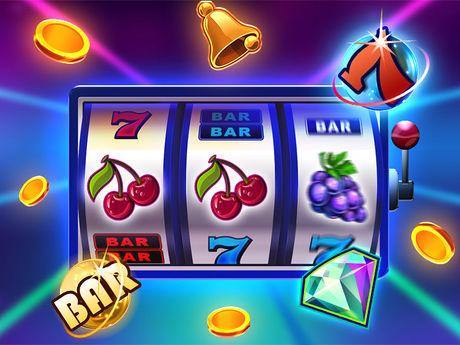Table of Contents
- Exploring the Myths and Realities of Online Slot Rigging
- Understanding Random Number Generators and Fair Play
- The Role of Licensing and Regulation in Online Gaming
- Identifying Fair Online Slots: Tips for Players
- Best Practices for Responsible Gaming and Avoiding Scams
- Q&A
- Concluding Remarks
Exploring the Myths and Realities of Online Slot Rigging
The belief that online slots are rigged often stems from misconceptions about how these games operate. Random Number Generators (RNGs) are at the heart of online slot mechanics, ensuring that every spin is independent and random. This technology is rigorously tested and audited by third-party companies to maintain fairness. Players can rest assured that the outcomes of spins are not influenced by any external factors or previous results, dispelling the notion of any premeditated rigging.
Many players also fall prey to the idea that certain games are “hot” or “cold,” implying that a player can manipulate the odds through timing. In reality, each machine has its own return to player (RTP) percentage, which is determined by the game developer. Understanding these percentages can provide clarity. Consider this table that illustrates common RTP ranges for various types of slot games:
| Slot Type | Typical RTP (%) |
|---|---|
| Classic Slots | 85 – 95 |
| Video Slots | 92 – 97 |
| Progressive Slots | 88 - 95 |
Understanding that online slots are regulated and that RNG technology is consistently improving is vital for players hoping to engage in fair gameplay. In reputable online casinos, the licensing and regulation processes add additional layers of protection against rigging myths. Responsible gambling practices and thorough research can empower players to enjoy their gaming experience without fear of manipulation, leading to a more satisfying and less stressful journey through the world of online slots.


Understanding Random Number Generators and Fair Play
Random number generators (RNGs) are the backbone of online slots, ensuring that every spin is unpredictable and fair. These complex algorithms produce number sequences at high speeds, creating outcomes that are not influenced by previous spins or any external factors. This mechanism is crucial for maintaining the integrity of online gambling platforms. Without RNGs, players could manipulate the system, resulting in unfair advantage and potential losses for operators.
To better understand how RNGs function, it’s important to recognize their role in promoting fair play. Licensed online casinos employ independent testing agencies to audit their RNG systems regularly, ensuring compliance with established gaming standards. Here are some key characteristics of reliable RNGs:
- Transparency: Certified RNGs publish their test results, allowing players to verify their integrity.
- Uniformity: RNG systems provide outcomes that adhere to a defined probability, ensuring no single player has an edge.
- Randomness: Every outcome is completely random, making it impossible to predict or manipulate spin results.
Another aspect that players should consider is the Return to Player (RTP) percentage, which indicates how much a slot machine pays back to players over time. For example, a slot with a 96% RTP suggests that, on average, it will return $96 for every $100 wagered. Here’s a quick comparison:
| Slot Game | RTP (%) |
|---|---|
| Classic Slots | 95 |
| Video Slots | 96 |
| Progressive Jackpot Slots | 92-94 |
Understanding these elements will help players make informed decisions about their gaming experience. With regulated RNGs and transparent RTP percentages, the notion that online slots are rigged becomes increasingly unfounded. Players can enjoy their favorite games with confidence, knowing that fairness is at the core of the experience.


The Role of Licensing and Regulation in Online Gaming
The landscape of online gaming is significantly shaped by licensing and regulation. These mechanisms are essential in ensuring that games like online slots operate fairly and transparently. When different jurisdictions impose strong regulatory frameworks, they help build player trust by providing assurance that gaming operators adhere to strict standards. This includes requirements for the random number generators (RNGs) that determine outcomes in slots, ensuring that they offer fair chances and are not manipulated.
Without proper oversight, players might feel vulnerable to unfair practices. Regulatory bodies from various countries, such as the UK Gambling Commission and the Malta Gaming Authority, enforce guidelines requiring operators to regularly audit their games. These checks not only serve to validate the integrity of the games but also impose penalties on those who fail to comply. Here’s a brief overview of the role these entities play:
| Regulator | Key Responsibilities |
|---|---|
| UK Gambling Commission | Ensures player safety, fair play, and compliance with licensing laws. |
| Malta Gaming Authority | Promotes a regulated gaming environment and protects players’ rights. |
| New Jersey Division of Gaming Enforcement | Oversees online gaming operations and ensures adherence to state laws. |
In addition to maintaining fairness, licensing and regulation also provide a framework for dispute resolution. Players have recourse to report grievances to the relevant authorities, ensuring that their concerns are addressed adequately. This encourages operators to prioritize player satisfaction and uphold a higher standard of service. As the industry continues to evolve, the commitment to strong regulatory practices will remain a cornerstone in promoting a safe and trustworthy online gaming environment.


Identifying Fair Online Slots: Tips for Players
When venturing into the world of online slots, it’s critical for players to distinguish between fair games and those that may not adhere to high standards of integrity. Here are some essential tips to help you navigate this landscape:
- Check for Licenses: Always look for online casinos that are licensed and regulated by reputable authorities. Regulatory bodies, like the UK Gambling Commission or the Malta Gaming Authority, ensure that the games they certify use certified random number generators (RNGs) and uphold fair play standards.
- Read Player Reviews: Feedback from other players can provide insights into the fairness of a slot game. Seek out reviews on forums and player communities to gauge the overall reputation of the casino and its offerings.
- Understand RTP Values: The Return to Player (RTP) percentage indicates how much a slot game pays back to players over time. Higher RTP percentages, typically over 95%, suggest a better chance of winning in the long term. Always verify these stats by consulting the game’s information section or casino guidelines.
Another critical aspect in determining the fairness of an online slot is examining the software providers. Gambling platforms that collaborate with established and respected developers, such as NetEnt, Microgaming, and Play’n GO, tend to offer more trustworthy gaming experiences. These companies routinely undergo independent audits and testing to reinforce their commitment to player fairness.
| Provider | RTP | License |
|---|---|---|
| NetEnt | 95.5% – 97.7% | UK Gambling Commission |
| Microgaming | 96.0% – 97.0% | Malta Gaming Authority |
| Play’n GO | 94.5% - 96.6% | Gibraltar Regulatory Authority |
Lastly, pay attention to the user experience and the game mechanics of the slots you choose. An interface that allows players to easily understand the rules, bonuses, and payout structures demonstrates transparency. Additionally, fair online slots often provide various betting options and bonus features, enhancing the gaming experience while maintaining fairness.


Best Practices for Responsible Gaming and Avoiding Scams
When engaging with online slots, it’s essential to approach the experience with a mindset that prioritizes both enjoyment and mindfulness. Setting a budget before you start playing can help ensure that your gaming remains a fun and entertaining activity. Here are some effective strategies to reinforce responsible gaming:
- Limit Time and Spending: Decide on a specific amount of time and money you’re willing to spend on gaming. Stick to this limit to prevent impulsive decisions.
- Take Regular Breaks: Step away periodically to refresh your mind and evaluate your gaming experience. This can mitigate the risks of losing track of time.
- Stay Informed: Educate yourself about the games you play, including their payout percentages and volatility, to make more informed decisions.
Equally crucial is the ability to recognize and avoid scams lurking in the online gaming landscape. Here are some practical tips to safeguard your gaming experience and protect your finances:
- Verify Licensing: Always check if the online casino is licensed by a reputable authority. This acts as a strong indicator of the platform’s legitimacy.
- Research the Casino: Look for user reviews and feedback on gambling forums to assess the reputation of the casino you’re considering.
- Avoid Unrealistic Promises: Be wary of sites that guarantee winnings or offer rewards that seem too good to be true, as these are often red flags.
Lastly, staying aware of the latest trends and updates in the gaming industry can help you distinguish legitimate opportunities from potential traps. Below is a brief overview of common signs of fraudulent online casinos:
| Warning Signs | Description |
|---|---|
| Unclear Terms and Conditions | Be cautious of sites that do not clearly outline their rules, bonuses, and withdrawal processes. |
| Slow Payouts | Legitimate casinos process payouts promptly. Delays may indicate issues with the platform. |
| No Customer Support | Reputable casinos offer responsive customer service. Lack of support can be a significant warning. |
Q&A
Q&A: Are Online Slots Rigged?
Q1: Are online slots really rigged?
A1: The short answer is no, reputable online slots are not rigged. Licensed online casinos utilize Random Number Generators (RNGs) to ensure that all game outcomes are fair and unbiased. These RNGs are regularly tested and verified by independent auditors to guarantee their legitimacy. However, it’s essential for players to choose licensed and regulated operators to ensure a fair gaming environment.Q2: How can I tell if an online casino is trustworthy?
A2: Trustworthy online casinos will be licensed by a recognized authority, such as the UK Gambling Commission or the Malta Gaming Authority. Look for their licensing information prominently displayed on their website. Additionally, check for third-party certifications and read reviews from other players to gauge the casino’s reputation.Q3: What about reports of players winning less than expected?
A3: Variances in wins can be attributed to several factors, including the game’s return-to-player (RTP) percentage, which indicates how much of the total bets are paid back to players over time. Some slots may have lower RTPs, resulting in fewer wins for players on average. Therefore, it’s always prudent to check the RTP before playing and remember that gambling outcomes are inherently unpredictable.Q4: Are there any strategies to beat online slots?
A4: While there is no guaranteed strategy to win at online slots, players can enhance their experience by managing their bankroll wisely and choosing games with higher RTP percentages. It’s also beneficial to take advantage of any bonuses or promotions offered by online casinos, as these can provide additional chances to win without risking more of your own money.Q5: What happens if I suspect that an online slot is malfunctioning or unfair?
A5: If you suspect that a game is malfunctioning or not operating fairly, you should first document your experience. Most reputable casinos have a customer support team that can address such concerns. If the issue remains unresolved, you can escalate the matter to the regulatory authority that licensed the casino for further investigation.Q6: How do online slots differ from traditional slot machines?
A6: Online slots and traditional slot machines share the same fundamental mechanics; however, online slots offer a wider variety of themes, features, and betting options. Online versions often incorporate modern technology to enhance gameplay with animations, bonus rounds, and progressive jackpots, making them more engaging than their land-based counterparts.Q7: Can I play online slots for free?
A7: Yes, many online casinos offer free play or demo modes for their slots. This allows players to practice and familiarize themselves with the game without risking real money. It’s a great way to test different strategies and find the games that suit your preferences before diving into real-money play.Q8: Are there age restrictions for playing online slots?
A8: Yes, to play online slots legally, you must meet the legal gambling age requirements in your jurisdiction. This age varies by country and can range from 18 to 21 years old. Always check the legal age in your location and ensure the casino enforces these regulations.understanding online slots and ensuring a fair gaming experience comes down to playing at regulated casinos, knowing the mechanics of the games, and making informed choices. Remember, responsible gaming is key to enjoying your online slot adventures!










